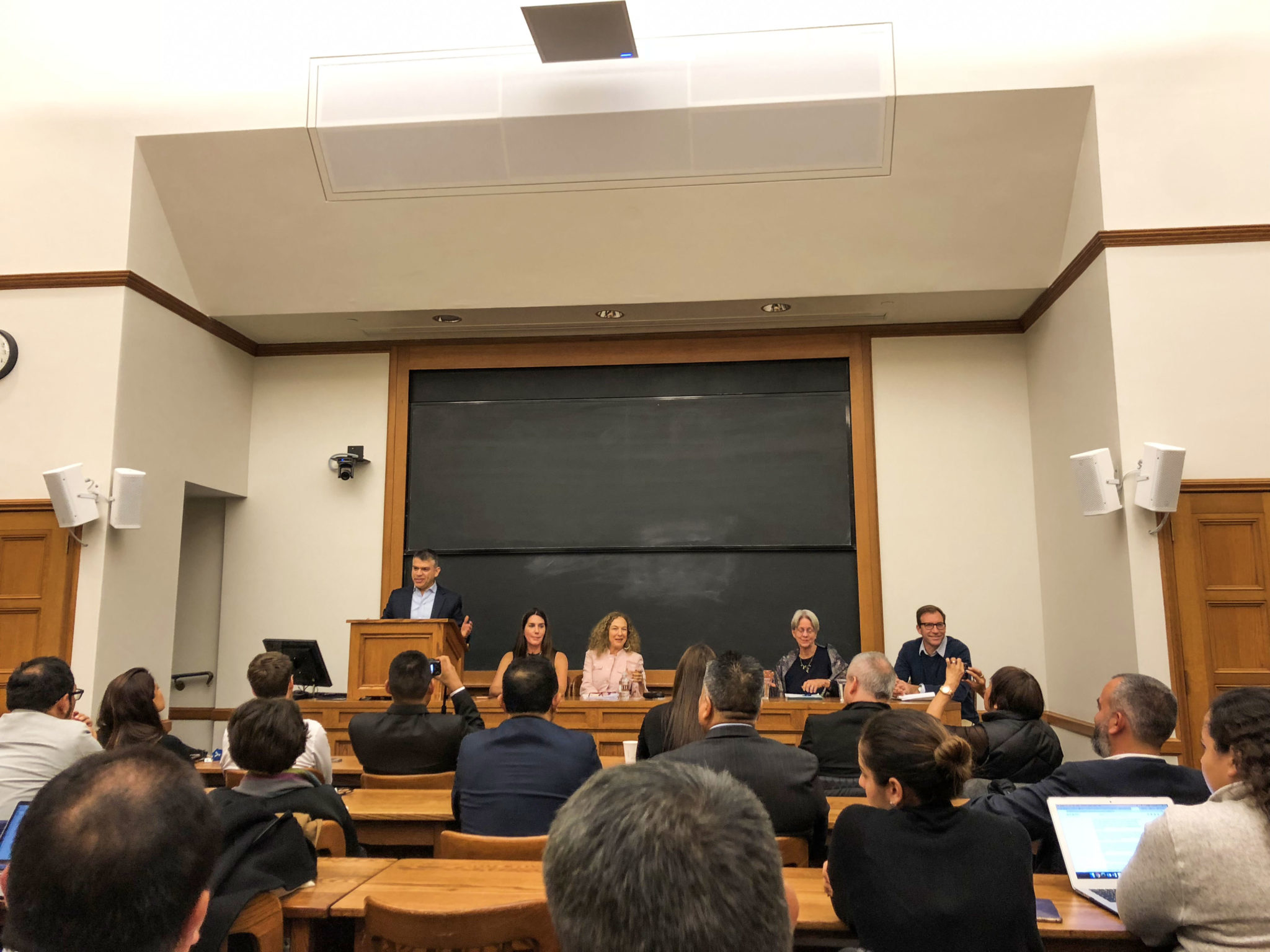
Tuesday afternoon, Yale Law School welcomed a panel of economists, legal experts and politicians to discuss the struggle for government transparency in Peru.
The panel, entitled “New Opportunities to Fight Corruption in the 21st Century: The Case of Peru,” included Lima’s anti-corruption judge Carolina Lizarraga LAW ’05, Peruvian documentary filmmaker Sonia Goldenberg, Law School professor Susan Rose-Ackerman and World Fellow and former Peruvian presidential candidate Julio Guzmán.
During the talk, Lizarraga specifically noted Peru’s struggle with corruption. She detailed instances of candidates being offered illegal campaign contributions, money mules crossing borders with money strapped to their bodies and a political reality shaped by “the complete absence of transparency.”
“We’ve just had the election of Jair Bolsonaro in Brazil, Andrés Manuel López Obrador in Mexico, in Peru, Pedro Pablo Kuczynski has resigned,” Goldenberg said, explaining the waves of populism and corruption moving across Latin America. “Can democracy survive and succeed in the face of corruption?”
In the wake of Brazil’s “Operation Car Wash,” which led to the impeachment of former Brazilian President Dilma Rousseff, Peruvian politicians have also been implicated in corruption cases linking them to the seemingly continent-wide money laundering scandal. Current Peruvian President Martín Vizcarra scheduled a national referendum on constitutional amendments that would reel in government corruption. In this referendum, Peruvians will vote on whether to end private financing of political campaigns, impose a one-term limit on government officials and create a bicameral legislative structure.
Goldenberg noted that less than 80 percent of Peruvian politicians are re-elected, raising doubt about the efficacy of the reforms if the referendum were to pass. Moreover, she added that the reforms would make even uncorrupt Peruvian politicians ineligible for re-election.
“With some perspective, Peru in the last 25 years has succeeded in winning the war against terror, making peace with its neighbors, survived hyperinflation and is on a path of economic growth, and we survived a president stepping down,” she said. “The referendum is a bubble of oxygen. In order to succeed, President Vizcarra will have to show not only leadership and political skill, he will have to be a statesman.”
She added that if Vizcarra succeeds in his efforts, it would be less likely that the future Peruvian president will be a “populist from the far right or left.”
Rose-Ackerman spoke about the economic flaws of a corrupt government. She criticized Peruvian public infrastructure projects that are designed to use public funds to benefit politicians’ specials interests.
Guzmán, who was ultimately barred from running in the 2016 Peruvian presidential election, was optimistic about Peru’s fight against corruption. Guzmán was disqualified a month before the election when a technical error in the registration of his candidacy was discovered, according to the Guardian.
Guzmán said that Peru’s history informs his optimism.
“Now, in comparison to 20 years ago, we have a demand for justice,” he said. “Then, Peruvians were more interested in having a job. Now, we are interested in more.”
He also highlighted demographic changes that signal a shift in the political climate, since 60 percent of Peruvian voters today are between the ages of 18 and 42. He added that the challenge for the country today is to build a “consistent supply” of people working in the judiciary.
The referendum is set to take place on Dec. 9.
John Besche | john.besche@yale.edu .







